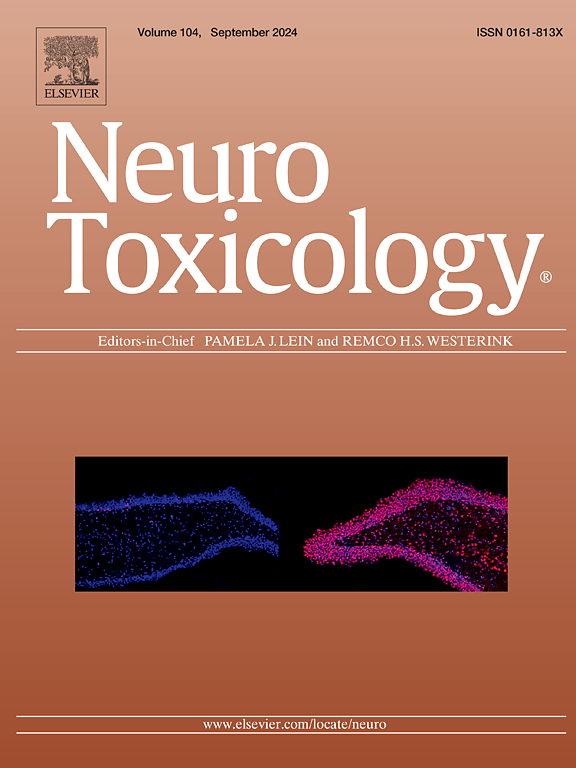芦丁和氟西汀共同补充对水仙的神经保护和胃保护作用:生化分析。
IF 3.9
3区 医学
Q2 NEUROSCIENCES
引用次数: 0
摘要
全球很大一部分人口受到抑郁症的影响,造成了相当大的社会和经济负担。虽然氟西汀等抗抑郁药是有效的,但长期使用往往伴随着不良副作用。本研究采用水蚤模型研究了氟西汀和芦丁单独及联合使用对水蚤的生化作用。蟑螂补充这些化合物7天,在此期间监测毒性、体重和食物摄入量。在治疗结束时,对神经和肠道组织进行生化分析,并对化合物进行计算机评价。与单独使用氟西汀相比,芦丁(5mg/mL)和氟西汀(20mg/mL)的联合补充显著降低了TBARS水平,并阻止了氟西汀治疗通常观察到的体重减轻,尽管各组的食物摄入量相似。芦丁还能减轻氟西汀的毒性。这些发现表明,芦丁共补充可能减轻氟西汀诱导的氧化应激和毒性,支持其在抗抑郁治疗期间作为保护剂的潜力。本文章由计算机程序翻译,如有差异,请以英文原文为准。
Neuroprotective and gastroprotective effects of rutin and fluoxetine Co-supplementation: A biochemical analysis in Nauphoeta cinerea
A significant portion of the global population is affected by depression, leading to considerable social and economic burdens. Although antidepressants such as fluoxetine are effective, their prolonged use is often associated with adverse side effects. This study investigated the biochemical effects of fluoxetine and rutin, individually and in combination, using the Nauphoeta cinerea model. Cockroaches were supplemented with the compounds for seven days, during which toxicity, body weight, and food intake were monitored. At the end of the treatment, neural and intestinal tissues were subjected to biochemical analyses, and in silico evaluations of the compounds were also performed. Co-supplementation with rutin (5 mg/mL) and fluoxetine (20 mg/mL) significantly reduced TBARS levels compared to fluoxetine alone and prevented the weight loss typically observed with fluoxetine treatment, despite similar food intake across groups. Rutin also mitigated the toxicity associated with fluoxetine administration. These findings suggest that rutin co-supplementation may attenuate fluoxetine-induced oxidative stress and toxicity, supporting its potential as a protective agent during antidepressant therapy.
求助全文
通过发布文献求助,成功后即可免费获取论文全文。
去求助
来源期刊

Neurotoxicology
医学-毒理学
CiteScore
6.80
自引率
5.90%
发文量
161
审稿时长
70 days
期刊介绍:
NeuroToxicology specializes in publishing the best peer-reviewed original research papers dealing with the effects of toxic substances on the nervous system of humans and experimental animals of all ages. The Journal emphasizes papers dealing with the neurotoxic effects of environmentally significant chemical hazards, manufactured drugs and naturally occurring compounds.
 求助内容:
求助内容: 应助结果提醒方式:
应助结果提醒方式:


